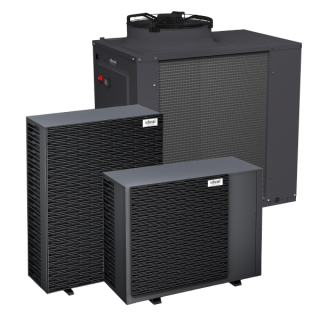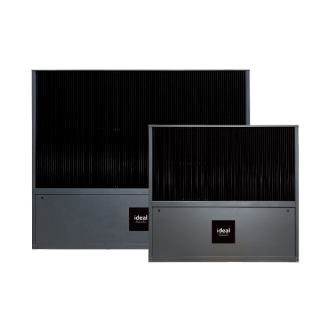Sustainability as a subject is hotly debated, with varying definitions, often depending on a person’s political stance. We like the definition presented by the Oxford Dictionary of English: "the property of being environmentally sustainable; the degree to which a process or enterprise is able to be maintained or continued while avoiding the long-term depletion of natural resources".
This definition serves us well when it comes to the heating of our buildings.
Why is natural gas unsustainable?
Since the discovery of natural gas in the North Sea in the 1960s, our UK heating has been mostly reliant on natural gas. But gas is not sustainable. Analysis of data from the North Sea Transition Authority by campaign group Uplift claims that there is only enough gas in existing North Sea gas fields for around five years. It may come as surprise, but the UK imports around 50% of its gas (£19.6 billion of gas in 2021) from the international market, with Norway being the biggest supplier. Whichever way you look at, from a resource, a financial, or an energy security perspective, this clearly isn’t sustainable.
Burning fossil fuels also isn’t good for our environment. The heating of homes and workspaces makes up almost a third of UK carbon emissions, which are one of the primary sources of greenhouse gases (GHGs). GHGs in the atmosphere trap the warmth from the sun, maintaining the earth’s temperature at an average 14˚C (57˚F). Human activity has, however, resulted in a dramatic increase in the release of GHGs, causing global warming and climate change.
So those are the problems, but what’s the solution?
What is the most efficient way to heat a commercial building?
The Climate Change Act legally commits the UK governments to reduce GHGs by at least 100% of 1990 levels by 2050; this is what is known as Net Zero.
A transformation of heat generation technology and products in the UK is necessary if we are to reach Net Zero in 2050. Heat pumps are seen as one of the major technology types to realise our Net Zero ambitions, along with heat networks that are expected to provide up to 20% of heat in buildings by 2050.
What is the best sustainable heating methods for commercial properties?
Heat pumps, such as our ECOMOD range, operate on small amounts of electricity and are up to four times more efficient than gas boilers. For every unit of electricity that they use, a heat pump can produce up to almost five units of heat, making them an eco-friendly heating method.
However, for heat pumps to be truly sustainable, the power source has to be also. In 2022, 40.8% of the UK’s electricity was generated from fossil fuels (38.4% from gas) and 56.2% from low-carbon sources, including 41.5% from renewables and 14.7% from nuclear. Removing reliance on natural gas to generate electricity will require huge structural change within the energy industry, including enormous investment in renewable Net Zero energy sources like wind and solar power. Of course, there are a number of renewable energy suppliers in place, so if you select one of these your heat pump really does become an entirely sustainable solution.
When you select a heat pump though, be sure to check out the type of refrigerant used. Many refrigerants used in heat pumps have a high Global Warming Potential (GWP), meaning they contain extremely potent GHGs. R410a, for example, has a huge GWP of 2088, compared to natural refrigerants such as R290 at 3 and R744/CO2 at 1. These are clearly the eco-friendly heating option and are to be found in our latest ECOMOD 290HT and ECOMOD CO2 and CO2Q heat pumps.
Heat Pumps can be used alone or, where required, can form part of a lower carbon hybrid heating system by being installed alongside gas or electric boilers. We are often seeing boilers being used a back up to the heat pumps, kicking in at times of heavy demand. A great example of this can be seen at Tinsley Meadows Primary Academy in Sheffield where ECOMOD heat pumps have been installed alongside two Ideal Heating wall hung EVOMAX 2 40kW commercial condensing boilers.
Want to make the change to eco-friendly heating?
If you would like to find out more about sustainable heating systems for commercial buildings, visit our Net Zero page which has a range of resources, or contact your local business development manager.



